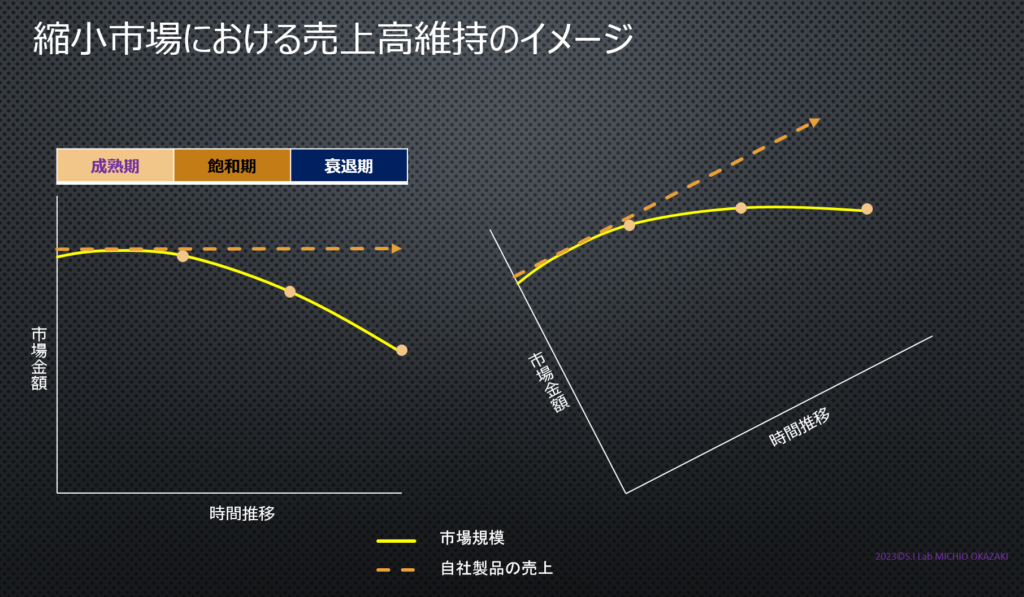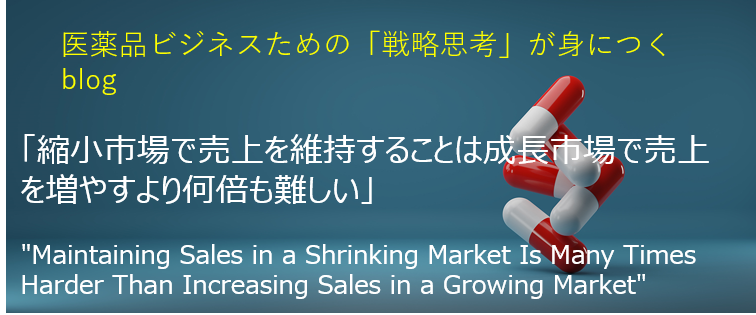
市場には導入期から成長期、成熟期を経て衰退期へと進むライフサイクルがあると言われています。
戦後の高度経済成長期のように需要規模が供給量を上回り市場が拡大する成長期では、市場参入者の全てが売上を増やすことが可能です。
しかしリーマンショック以降の景気後退が続く現在のビジネス環境では、市場が縮小傾向にある成熟期から衰退期へと向かっており、競争環境はより一層厳しくなっています。
すなわち現状を維持すればよいと考えていては競合他社に市場を奪われるゼロサムゲームの状態にあります。
添付の図は縮小する市場の軸を水平になるように回転させています。
維持するためには競合他社との競争に勝つことが必須条件です。
Title: “Maintaining Sales in a Shrinking Market Is Many Times Harder Than Increasing Sales in a Growing Market”
It is often said that markets go through a lifecycle, from introduction to growth, maturity, and eventually decline.
During growth periods, such as the post-war era of high economic growth when demand exceeded supply, and markets expanded, all market participants could increase their sales.
However, in today’s business environment marked by economic slowdowns since the aftermath of the Lehman Shock, markets are shifting from maturity to decline, and the competitive landscape has become even more challenging.
In other words, merely aiming to maintain the current status quo puts businesses in a zero-sum game, where competitors may seize market share.
The attached diagram rotates the axis of a shrinking market to be horizontal.
To succeed in maintaining sales, it is essential to win in competition against rival companies.

